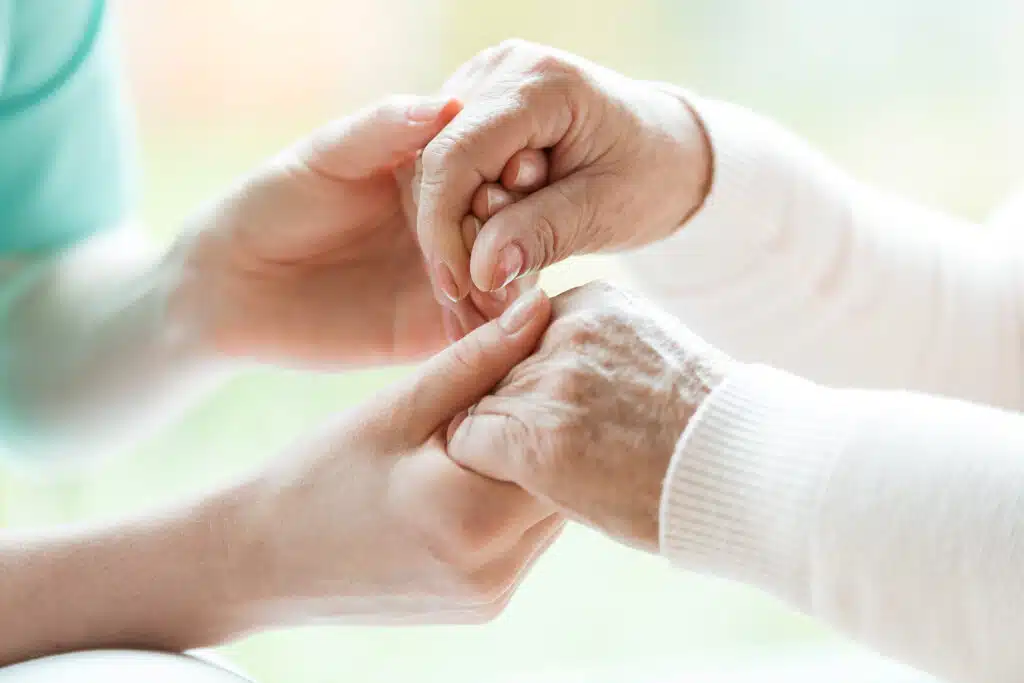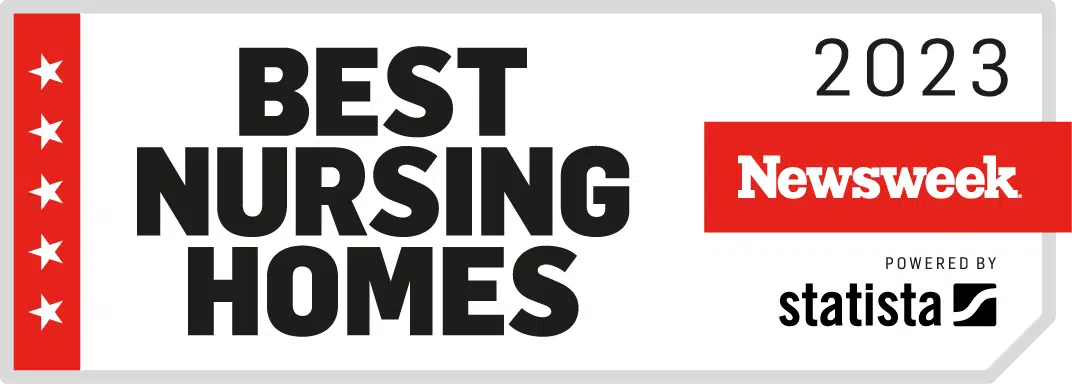The chaplains who work for VHS Hospice can be considered chameleons. They slide into being listeners, confidants, conversationalists and organizers. The chaplains morph into what a patient needs.
The chaplains divide territory among Virginia Health Services’ seven nursing and rehabilitation centers. They also serve patients in-home. They meet terminally ill patients wherever the individual is most comfortable.
Admission to hospice care is done in consult with an individual’s physician. It is for individuals who have a terminal prognosis with six or fewer months to live. An individual may live longer than that and remain in hospice care.
Hospice provides a holistic approach to end-of-life care. A team that includes nursing staff, social workers, therapists, dieticians, volunteers and others support individuals to maintain their dignity and comfort through their end of life.
That team also includes the chaplains, who work as team as well in supporting one another and the individuals they serve. The team is led by Bereavement Coordinator Lee Jewett. This interview was conducted with Jewett, Marguerita Wimberly and James Jackson. Dr. Richard Croxton joined the team to cover Walter Reed and Lancashire nursing and rehabilitation centers.
What is a hospice chaplain?
There’s a difference between a pastor and a chaplain, Jewett explains.
“A chaplain is like in the military, the person that whether a soldier is an atheist or whatever, they can come to this person and talk. And they won’t feel as though they are going to have a chaplain’s dogma pushed upon them. Now if the person wants the dogma, then James, Marguerita and I are thrilled to share that,” Jewett says, “but we want them to know that we’re there to hold their hand to encourage them and tell them that it’s going to be OK. … Like a fellow pilgrim, walking them down this final pathway that they’re going through and helping them.”
Getting to know individuals
The chaplains for VHS Hospice introduce themselves in an initial assessment and explain the program. The conversation focuses on getting to know an individual and “meeting them where they are,” said Wimberly, who serves as a part-time chaplain and social worker with VHS Hospice.
“You find out their religious backgrounds, if they are a part of any religious organizations. And you find out their spiritual needs. Then you try to gear your interactions with them to where the need is,” she said.
Bishop James Jackson says hospice chaplains are “Swiss Army knives.”
“That’s something I really feel wholeheartedly about that part of our calling is,” Jewett said. “I’m a Baptist, Christian and devout just like Marguerita and James are, very devout within their Christian belief system. But when I come in, if a person’s a devout Christian, I’m all on it and just thrilled to pieces and energized by it.
“But if they’re not, you know, to a NASCAR fan, I’ll be a NASCAR fan too. Yes, Yankee fan? Yes. To a bookworm, I’ll be a bookworm you know, as best as possible. So, I try to make myself as well rounded as possible so I can relate to many as many people as possible.”
Jackson also has a degree in psychology.
“I also put (the individual) in the aspect of thinking of it from a mind perspective. OK, this is going to happen. This is what you should do when this happens,” he says. “It’s OK to be upset, it’s OK to cry. It’s OK to have these types of things, because that’s how the body engages on what is going on.
“But it’s not the end all be all. So, they could with me, get the best of both worlds. They get the psychological aspect, but they also get the spiritual ramification as well.”
Bereavement support
Jackson says the VHS Hospice chaplains try to meet monthly as a group.
“If for nothing else but to just come together, talk with one another, talk about different strategies, different things that are going on, you know, kind of lift each other spiritually, because we’re dealing with people every day with problems, issues and concerns. And then we too have issues and concerns as well. It’s all about that iron sharpens iron mentality,” he says.
Bereavement support from VHS Hospice extends about a year after an individual passes. The chaplains make an initial call and assessment. Jewett handles the follow up, keeping careful track on a spreadsheet of getting communication to the family. It also spreads to the nursing and social worker staff to offer comfort. There are calls, cards from the staff and bereavement coaching letters.
“People can get at least a couple calls of comfort and know that we care about them,” Jewett says, “and that we’re here for them.”
Walking the path
The hospice team is there for the individual and their loved ones through the end of someone’s life, providing dignity and comfort.
“Sometimes death is OK for people, if they feel like everything is going to be good in the afterlife,” Jewett says. “Sometimes death can be very scary for a person. Sometimes death can be very painful for a person and that’s really what hospice tries to prevent.
“But sometimes death can be extremely worrisome, like, wow, what’s going to happen with my family now because, you know, I’m the patriarch or the matriarch and everything revolves, has revolved around me? So, we’re kind of there to try to be sensitive to whatever emotional, spiritual needs that might be presented by whichever particular patient.”
Learn more about VHS Hospice at vahs.com/hospicecare.








